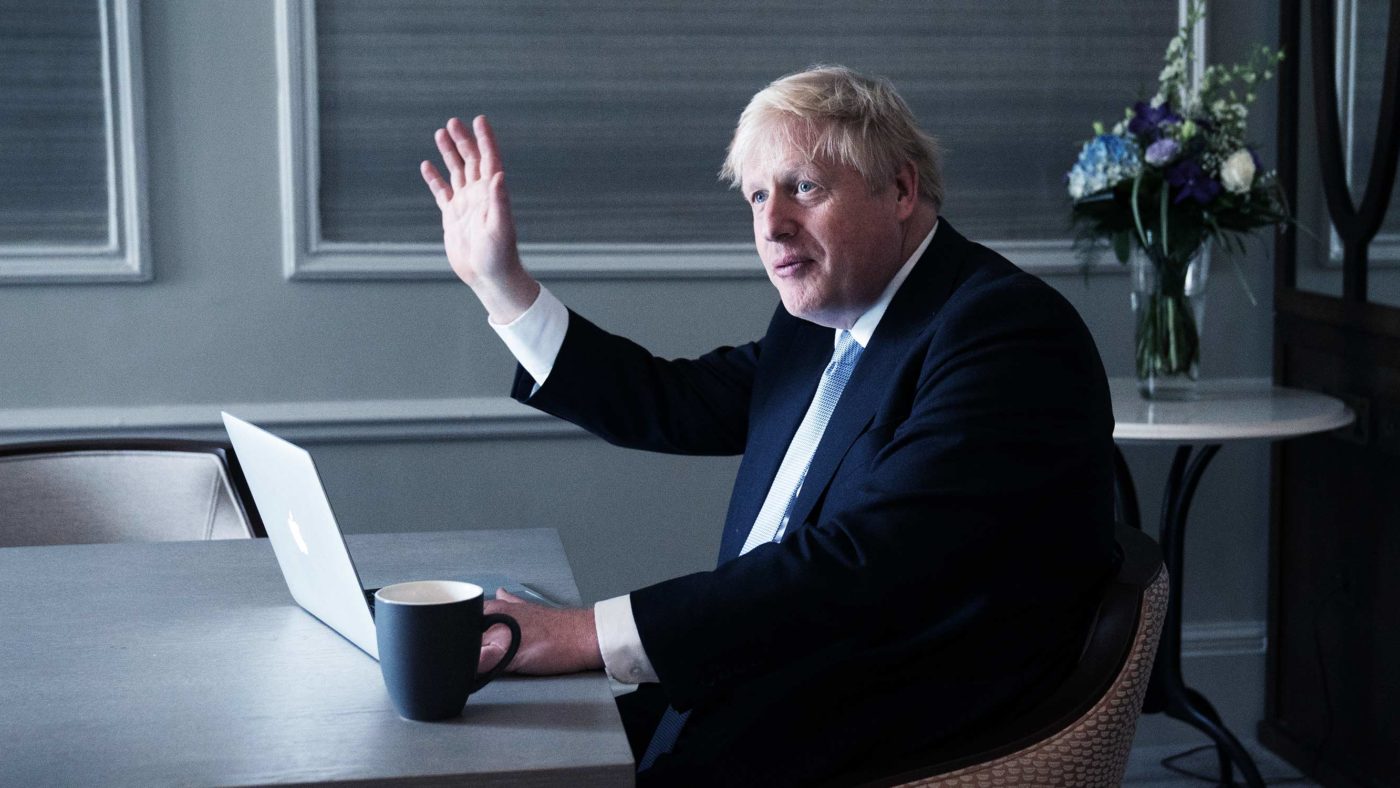Prime Minister Boris Johnson provided a relentlessly upbeat performance with his party conference speech – one that was light in policy but heavy on the optimism. But how did it compare to Labour leader Sir Keir Starmer party conference speech last week?
While there were tender and heart-warming moments in Starmer’s party conference speech in Brighton, it was much too long, poorly delivered and uninspiring. The Prime Minister, on the other hand, was pithy, high-octane and engaging – providing the sharpest contrast imaginable.
It was quite revealing that Starmer failed to capitalise on HGV driver shortages and the associated supply chain problems, while Johnson managed to turn what should be a serious weakness for the Government into part of an argument for a different kind of economy. In a remarkable act of political alchemy, Johnson recast the crisis as evidence of a failure to invest in skills and training for the domestic workforce, and an over-reliance on ‘the lever of uncontrolled immigration’.
This wasn’t some anti-migrant rant though – far from it. While stressing the importance of having a well-ordered immigration system, Johnson also rejected the view that Britain was ‘unfeeling and ungenerous in our attempts to control our borders’. He spoke of his pride at the Government’s bespoke resettlement schemes for Hongkongers who wish to escape free Chinese state tyranny and Afghans fleeing their country after the Taliban’s rapid takeover. Not for the first time, he touched on his own background, as the great-grandson of Ali Kemal – an Ottoman newspaper editor with strong liberal democratic convictions who was exiled in England.
As I noted on CapX last week, there seemed to be an omerta on immigration from the Starmer camp, and nor did he make any reference to refugees. That was a missed opportunity, as a positive story of ‘Benevolent Britain’ might have fitted in well with his attempt to craft a new ‘progressive patriotism’ (and idea that is very much still on the blocks, frankly).
Indeed, one of my biggest criticisms of Starmer’s speech was describing the UK as ‘isolated and irrelevant’ – the kind of line that would strike many voters not as anti-Conservative, but anti-British. It was a particularly ill-judged moment, given the UK had just signed up to a significant trilateral security pact with the United States and Australia, giving us a serious role in the Indo-Pacific for the foreseeable future. The line also revealed a deeper truth about Starmer – that he still views our international position through the lens of relations with the EU, rather than the wider world. In doing so, he plays into the Conservatives’ own messaging about looking beyond our near neighbours and forging a truly global foreign policy. Even worse for Labour was the fact that the party’s delegates voted strongly in favour of a motion condemning the AUKUS agreement, as though they were appalled by the idea of British influence on the world stage.
For all Labour’s problems, we shouldn’t be in the business of ‘over-complimenting’ the Prime Minister either. At times he indulges in a kind of pie-eyed optimism when the moment calls for a degree of realism. This is a government, after all, trying to weather a series of extremely serious crises, both long and short-term.
One that has been brought into sharp focus by the horrifying case of Sarah Everard is the urgent need to reform law and order. A lot of work must now be done to fix an under-resourced criminal justice system packed with unresolved domestic abuse cases. Then there is the long, difficult work of restoring trust in the police, especially among younger women. On security, the problem of migrants crossing the Channel looks unlikely to go away any time soon, particularly as it requires co-operation with a decidedly hostile French government, still smarting over the AUKUS deal and disinclined to do Johnson the slightest of favours.
On the economy too, we have enormous labour shortages in crucial sectors. Talking about employers investing in the workforce is one thing, but encouraging young British people to take up jobs in social care and agriculture in a ‘low-immigration’ economy is much easier said than done.
For all those issues, however, the PM has managed to set out his stall on the key battleground in post-Brexit politics – those who feel that Britain is basically a decent, tolerant place versus the doom-and-gloom merchants who instinctively see the worst in our society and often seem to revel in denigrating the UK.
This is where his greatest advantage lies over Starmer, who Johnson (perhaps unfairly) portrayed as failing to push back against the radical leftist in his party. But even if Starmer does succeed in sidelining the embarrassing Corbynites, he still comes across as an Eeyore-ish figure whose tone is a dispiriting mixture of sanctimony and pessimism. Conversely, Johnson’s brand of slightly Panglossian patriotism presents an attractive, inspiring vision of Britain as an ambitious country with a prominent role to play in the world.
Policy design and delivery is one thing, but Johnson’s brisk speech struck the right notes in an era where the patriotic credentials of the Left are under major scrutiny. For too many voters, the opposition remains defined by negativity, political amateurism and irrelevant identitarianism. That is Johnson’s greatest trump card – and you can be sure he will keep on deploying it ruthlessly.
Click here to subscribe to our daily briefing – the best pieces from CapX and across the web.
CapX depends on the generosity of its readers. If you value what we do, please consider making a donation.


